

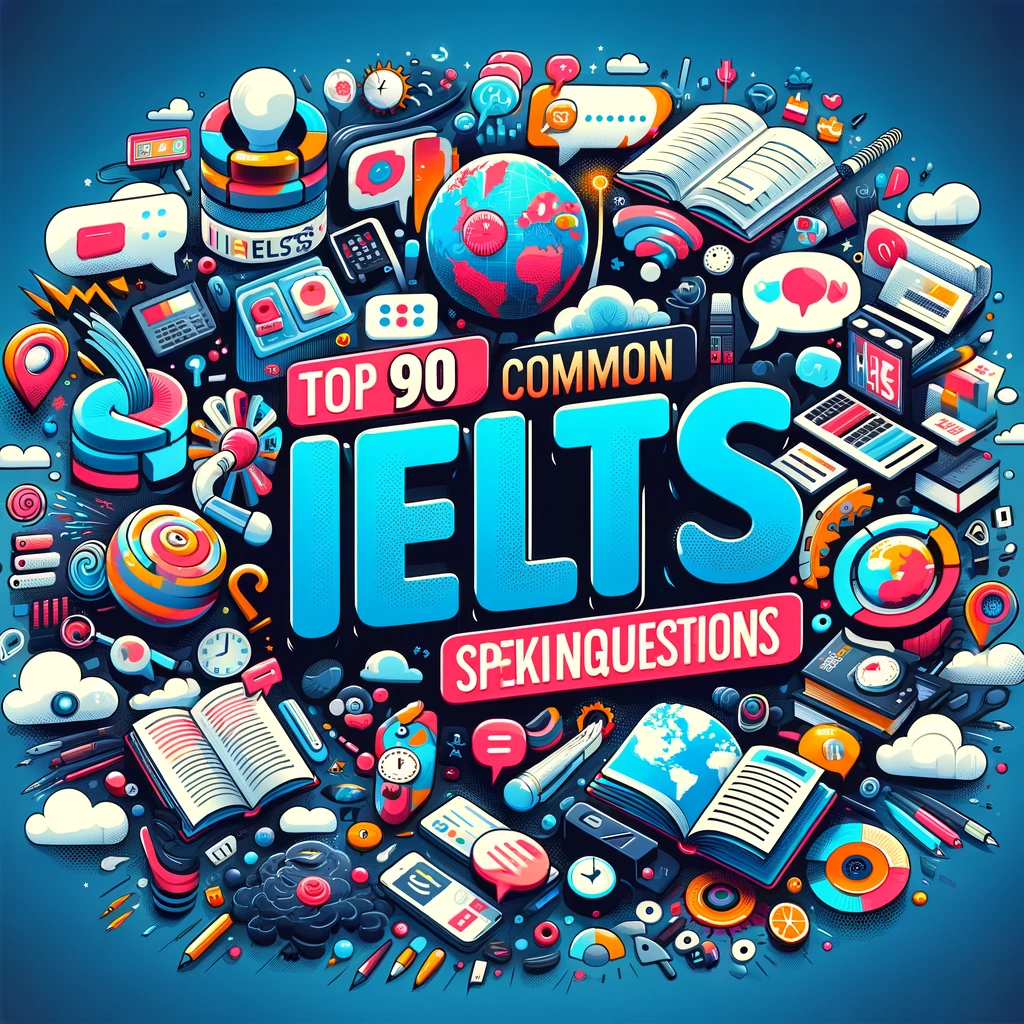
Top 90 Common Questions in IELTS speaking (audio included) (Thay Anh IELTS)
Question 1: What’s your name?
Sample Band 6.5 Answer:
My name is Linh. It’s a name that’s quite common in my country, and it holds significant meaning for me. In our language, Linh signifies a spirit or a soul, and it’s often associated with someone who is capable of great understanding and intuition. While I believe that we forge our own identities, I like to think that my name serves as a gentle reminder to strive for depth and insight in my interactions with the world.
Question 2: Does your name have any special meaning?
Sample Band 6.5 Answer:
My name, though common, holds a special place in my heart as it was chosen by my grandfather. He was a historian and had a fondness for traditional values, so he selected a name that reflected strength and resilience. He believed that a name can subtly influence a person’s path in life. Whether that’s true or not, I’ve always tried to live up to the virtues my name stands for, and this has become a part of my identity.
Question 3: Where do you come from?
Sample Band 6.5 Answer:
I hail from a small coastal town that is known for its vibrant fishing community and stunning seaside landscapes. It’s a peaceful place where everyone knows each other, and there’s a strong sense of belonging and shared history among the residents.
Question 4: What kind of landscape surrounds your hometown?
Sample Band 6.5 Answer:
The landscape around my hometown is quite diverse. We have the ocean on one side, providing breathtaking views of the sunrise over the water. Inland, there’s a mixture of rolling hills and flat farmlands, with several rivers that cut through the terrain, creating lush valleys that are especially green in the spring.
Question 5: What is the main crop in your hometown?
Sample Band 6.5 Answer:
The main crop cultivated in my hometown is rice. There are vast paddy fields that turn a brilliant shade of green during the growing season. The rice harvesting period is a significant time of year for us, and it brings the community together in a celebration of our agricultural heritage.
Question 6: What is the difference between Hanoi and your hometown?
Sample Band 6.5 Answer:
The contrast between Hanoi and my hometown is quite pronounced. Hanoi, as the capital city, is a hub of political and cultural activity with a rich history that’s reflected in its architecture and museums. It’s lively, with the hustle and bustle of urban life and streets lined with vendors and motorbikes. In contrast, my hometown is a serene place where life revolves around nature and the sea. It’s quieter and moves at a gentler pace, where the sounds of the city are replaced by the rhythm of the waves and the chatter of the local wildlife.
Question 7: What are the main places of interest in your hometown?
Sample Band 6.5 Answer:
In my hometown, which is a serene coastal town, the main attractions reflect our rich history and natural beauty. One of the most visited spots is the ancient lighthouse that has been guiding ships safely for centuries. Its history intertwines with that of the town itself. Additionally, we have the old market, which is a vibrant mosaic of local crafts and fresh produce, offering a taste of our local culture and traditions. For those inclined towards nature, the botanical gardens house an array of exotic plants and provide a tranquil escape from the everyday hustle. These places are not just tourist attractions; they are the heartbeat of our community, representing the spirit and resilience of our people.
Question 8: What is the climate like in your hometown?
Sample Band 6.5 Answer:
The climate in my hometown is classified as subtropical. We experience warm and humid summers with occasional monsoons, while winters are mild and rarely see frost. Spring and autumn are particularly pleasant, with moderate temperatures and a fair amount of sunny days.
Question 9: What is the character of the people like in the region where you live?
Sample Band 6.5 Answer:
People in my region are known for their warmth and hospitality. They have a reputation for being hardworking and resilient, likely influenced by the agricultural nature of our town. There’s also a community spirit here that’s evident in the way people support each other during both celebrations and challenging times.
Question 10: What are the differences in accent between the people of your hometown and Hanoi?
Sample Band 6.5 Answer:
The accent in my hometown is distinctly different from that in Hanoi. We have a unique intonation pattern and a certain musicality to our speech, with several local expressions and a slower pace of speaking. Hanoi’s accent is sharper and faster, and it’s generally considered to be the standard northern accent in Vietnam. People from Hanoi tend to pronounce words more clearly and with a more defined tone, whereas in my hometown, the accent is softer and words often blend into one another.
Question 11: What is people’s favorite food in your region?
Sample Band 6.5 Answer:
In my region, the favorite food among the locals has to be phở. It’s a comforting noodle soup that is not only flavorful but also embodies our culinary traditions. The broth is simmered for hours with spices and herbs, and the rice noodles are perfectly soft yet firm. It’s typically served with slices of beef or chicken and garnished with fresh herbs. Phở is not just a dish; it’s a culinary experience that brings families and friends together, especially on cool mornings
Question 12: How do you make spring rolls?
**Sample Band 6.5 Answer:**
Making spring rolls is a delightful task that we often enjoy doing as a family activity. To start, we prepare the filling, which consists of a mixture of ground meat—commonly pork or shrimp—mixed with shredded vegetables like carrots, mushrooms, and vermicelli noodles, all seasoned with a splash of fish sauce and a pinch of pepper. We then soak rice paper wrappers in water until they become pliable. Once ready, we place a portion of the filling onto each wrapper and roll them tightly, tucking in the ends as we go to seal the mixture inside. The rolls can then be either deep-fried until they’re golden and crispy or served fresh, accompanied by a dipping sauce made from fish sauce, lime juice, sugar, and chili. Whether fried or fresh, they’re a popular dish in my region, celebrated for their vibrant flavors and textures.
Question 13: What do you do during the Tết Holiday?
Sample Band 6.5 Answer:
During the Tết Holiday, my family and I partake in numerous traditional activities. We start by cleaning and decorating our house to welcome the new year and good fortune. We prepare special Tết dishes, such as bánh chưng and bánh tét, which are rice cakes that symbolize the Earth and the sky. We also pay visits to our relatives to exchange best wishes for the year ahead. It’s a time of reunion, reflection, and celebration, marking the most significant holiday in our culture.
Question 14: Why is the Tết Holiday so important to Vietnamese people?
Sample Band 6.5 Answer:
The Tết Holiday is of profound importance to Vietnamese people as it represents the start of the Lunar New Year. It’s a time to honor ancestors and pay respect to family. The practices and rituals performed during Tết are meant to invite prosperity and health for the coming year. It’s a period when people take a break from their daily work to reconnect with their roots, renew relationships, and share in the collective hope for a brighter future.
Question 15: Can you describe one of the main festivals celebrated in your country?
Sample Band 6.5 Answer:
One of the main festivals celebrated in Vietnam is the Mid-Autumn Festival, also known as the Moon Festival. This festival is celebrated when the moon is at its brightest and fullest size, symbolizing abundance and togetherness. Families gather to enjoy mooncakes—a special delicacy—and children participate in parades while carrying colorful lanterns. It’s a magical time where folktales come alive, and the community comes together to enjoy performances, games, and the beauty of the full moon. This festival is especially cherished by children, as it sparks imagination and joy through its vibrant traditions.
Question 16: Tell me something about the Lantern Festival.
Sample Band 6.5 Answer:
The Lantern Festival is a captivating event that takes place on the fifteenth day of the first lunar month, marking the final day of the Tết celebrations in Vietnam. It is a time when the night sky is illuminated by countless lanterns, each one carrying wishes and hopes for the new year. Families and friends gather to release these lanterns, creating a mesmerizing spectacle. There are also traditional games, lion dances, and a variety of sweet rice dumplings consumed, symbolizing reunion and happiness.
Question 17: Tell me something about the Hùng King Festival.
Sample Band 6.5 Answer:
The Hùng King Festival is a significant cultural event in Vietnam that commemorates the Hùng Kings, who are considered the founding fathers of the nation. It’s a national holiday marked by ceremonies and offerings at the Hùng Temple in Phú Thọ Province, with people paying homage to their ancestors. The festival is not just a reflection of our respect for history but also a vibrant display of our national pride, with traditional music, costumes, and parades.
Question 18: Tell me something about the customs of your country.
Sample Band 6.5 Answer:
Vietnam is a country with a rich tapestry of customs and traditions. One such custom is the importance of family meals, where multiple generations gather around the table to share food and stories, strengthening familial bonds. Another deep-rooted custom is the celebration of Tết, the Vietnamese New Year, a time when homes are cleaned to welcome good luck, debts are settled, and special foods are prepared. These customs are integral to our identity and play a crucial role in our communal and family life.
Question 19: How long have you lived in Hanoi?
Sample Band 6.5 Answer:
I’ve lived in Hanoi for the majority of my life. I was born here and have seen the city evolve over the years, from the quiet streets of my childhood to the vibrant and dynamic capital it is today. It’s a city that manages to balance modernity with tradition, and I’ve been fortunate to witness its transformation firsthand.
Question 20: What is the weather like in Hanoi?
Sample Band 6.5 Answer:
Hanoi experiences a humid subtropical climate with four distinct seasons. Summers are hot and humid with abundant rainfall, while winters are relatively cool and dry. Spring and autumn are considered the most pleasant times of the year, with milder temperatures and light breezes. The weather adds to the city’s charm, as each season brings its own beauty, from the golden leaves of autumn to the vibrant flowers of spring.
Question 21: How do you compare the climate in Hanoi with that in your hometown?
Sample Band 6.5 Answer:
Hanoi’s climate is quite different from that of my coastal hometown. While Hanoi enjoys a continental climate with significant seasonal changes, my hometown has a more tropical, maritime climate with higher humidity and less variation in temperature throughout the year. I find Hanoi’s winter particularly distinctive, as it brings a coolness that is never experienced in my hometown, where the weather remains warm year-round.
Question 22: What place in Hanoi do you like best? Why?
Sample Band 6.5 Answer:
My favorite place in Hanoi has to be the Old Quarter. It’s the historical heart of the city, where the vibrant energy is palpable. The narrow streets, colonial architecture, and the buzz of motorbikes create a lively atmosphere that’s both chaotic and charming. The Old Quarter is also a culinary paradise, offering an array of street food that embodies the essence of Vietnamese cuisine. It’s a place where the past and present coalesce, offering a glimpse into the soul of Hanoi.
Question 23: Which is the worst place you’ve been to in Vietnam?
Sample Band 6.5 Answer:
I prefer to find the positive in every place I visit, but if I had to choose, I would say that the overly commercialized tourist spots can be the least enjoyable. Sometimes, places lose their charm when they become too focused on tourism and neglect the authenticity that originally made them special.
Question 24: Which is the best place you’ve been to in Vietnam?
Sample Band 6.5 Answer:
The best place I’ve visited in Vietnam would be Hạ Long Bay. It’s a UNESCO World Heritage site known for its emerald waters and thousands of towering limestone islands topped with rainforests. Taking a cruise through the bay and witnessing the sheer magnificence of nature was an unforgettable experience. The peacefulness and beauty of the area are unparalleled, and it’s a destination that I think everyone should experience at least once.
(còn tiếp…)
Question 25: What places in Hanoi should a foreigner visit? Why?
Foreigners visiting Hanoi should not miss the Old Quarter for its historical significance and vibrant atmosphere. The Temple of Literature is another must-visit for its status as Vietnam’s first national university and a testament to the country’s educational heritage. For a touch of tranquility, the serene Hoan Kiem Lake offers a respite from the city’s bustle, and it’s surrounded by local culture and history.
Question 26: What are the major social problems in Hanoi? How can they be solved?
Hanoi, like many growing cities, faces issues such as traffic congestion and air pollution. Addressing these requires a multifaceted approach, including improving public transportation, promoting eco-friendly vehicles, and enforcing environmental regulations more strictly.
Question 27: What is the biggest problem Vietnam faces?
The biggest challenge facing Vietnam may be balancing economic growth with environmental sustainability. As the country develops, it’s crucial to manage industrial growth to protect its natural resources and ensure a healthy environment for future generations.
Question 28: What places in Hanoi should a foreigner visit? Why?
In addition to the previously mentioned Old Quarter, Temple of Literature, and Hoan Kiem Lake, a foreigner should visit the Imperial Citadel of Thăng Long for a glimpse into Vietnam’s rich history. It’s a UNESCO World Heritage site and offers insight into Hanoi’s thousand-year-old past.
Question 29: Could you tell me something about your family?
Certainly, my family is quite close-knit and supportive. We value our time together, whether it’s sharing meals or celebrating festivals. The warmth and unity in my family provide a strong foundation for facing life’s challenges.
Question 30: Have you any children?
Yes, I do have children, and they bring a great deal of joy and energy into my life.”
Question 31: What is your child’s name? Does his name have a meaning?
In Vietnamese culture, names are often given with meaningful significance. For example, one could say: “My child’s name is An, which means ‘peace’ in Vietnamese. It reflects our wish for him to lead a serene and fulfilling life.”
Question 32: What does your wife/husband do?
My spouse is involved in [profession], which they find both challenging and rewarding. It’s a field that requires [brief description of job requirements], and I have great respect for their dedication to their work.
Question 33: When did you get married?
We were married [number of years] years ago. It was a memorable time in our lives, surrounded by family and friends as we celebrated our union.
Question 34: Describe your wedding.
Our wedding was a traditional Vietnamese ceremony, which included both modern and cultural elements. It was a vibrant celebration with rituals such as the wedding procession, ancestral worship, and an elaborate feast.
Question 35: How have weddings changed in recent years?
Vietnamese weddings have increasingly incorporated Western elements, such as white bridal dresses and exchanging vows. However, many couples still uphold traditional customs like asking for the bride’s hand in marriage and offering gifts to the bride’s family.
Question 36: Are there any special customs about wedding in your region?
In my region, one special custom is the ‘Betrothal Ceremony,’ where the groom’s family presents gifts to the bride’s family. This ceremony solidifies the engagement and sets the stage for the wedding.
Question 37: Describe a traditional wedding ceremony.
A traditional Vietnamese wedding ceremony involves several stages, including the proposal, engagement, and the wedding day itself, which has the ‘Le An Hoi’ (betrothal ceremony) and ‘Le Cuoi’ (wedding ceremony). It’s a beautiful blend of rituals, colorful attire, and community celebration, reflecting the country’s deep-rooted cultural heritage.
Question 38: Where did you go for your honeymoon?
For our honeymoon, we chose the serene and picturesque Ha Long Bay in Vietnam. It’s a place of natural wonder, with its emerald waters and limestone islands creating a tranquil and romantic atmosphere.
Question 39: Did you have to ask for permission from your parents before you got married?
In Vietnamese culture, seeking parental blessing before marriage is a deep-rooted tradition. It’s seen as a gesture of respect and is typically a cherished part of the engagement process.
Question 40: Is it acceptable for couples to live together without marrying?
While traditional Vietnamese values tend to favor marriage before cohabitation, modern perspectives are becoming more accepting of couples living together without formal nuptials, especially in urban areas.
Question 41: Where do you think a newly married couple should live? Living with their parents or on their own?
This is subjective and depends on the couple’s preferences and circumstances. In Vietnam, it’s common for newlyweds to live with the husband’s family, but many also choose to establish their own homes to foster independence.
Question 42: What responsibilities should a couple take?
A couple should collaboratively manage their household, support each other’s goals, and if they choose to have children, raise them with love and guidance that reflects their values and cultural heritage.
Question 43: How do Vietnamese usually celebrate birthdays?
Vietnamese people typically celebrate birthdays with family and friends, enjoying a meal together. The highlight is often a sweet, rich cake, and the celebrant may receive red envelopes containing “lucky money” as gifts.
Question 44: Are there any traditions concerning the birth of a baby?
Yes, one significant tradition is the ‘one-month celebration’ when a baby turns one month old. Families hold a ceremony where they give thanks, and the baby is introduced to relatives, with red envelopes given to the child for good luck.
Question 45: What kind of parent do you intend to be?
As a parent, I aspire to be nurturing and supportive, instilling in my children the values of respect, kindness, and the importance of education. I intend to be a guiding presence, helping them navigate life with wisdom and integrity.
Question 47: Why do people in Vietnam traditionally want to have a son?
Traditionally, a preference for sons in Vietnam is rooted in beliefs about family lineage and inheritance, with sons typically being responsible for ancestor worship and continuing the family name. However, attitudes are changing, and there’s growing recognition of gender equality.
Question 48: What difficulties do Vietnamese farmers have concerning their old age?
Vietnamese farmers often face challenges in old age, such as limited access to healthcare and retirement funds. There’s also the physical strain of farming that becomes tougher with age. Addressing these issues is essential for the well-being of our aging farmers.
Question 49: What do you think needs to be done in order to relieve the farmer’s worries in Vietnam?
To alleviate the worries of Vietnamese farmers, I believe there should be more government support in terms of agricultural subsidies, improved access to healthcare, and retirement benefits. Investment in rural infrastructure and education can also help farmers’ children pursue diverse careers, ensuring the family’s financial security.
Question 50: What hope or fears do you have for your children?
My hope for my children is that they grow up in a peaceful, stable Vietnam and have the opportunities to fulfill their potential. My fear is that they might face environmental challenges and social inequalities that could limit their prospects.
Question 51: What sort of culture do you hope your child will grow up in?
I hope my child will grow up in a culture that maintains its rich Vietnamese heritage while embracing global perspectives. A culture that values education, community, and respect for all individuals regardless of background.
Question 52: Are you going to bring up your child differently from the way you were brought up? How?
While I appreciate the traditional upbringing I had, I intend to bring up my child with perhaps a greater emphasis on critical thinking and exposure to diverse cultures, preparing them for a more interconnected world.
Question 53: Do you enjoy shopping?
Yes, I find shopping to be a pleasant activity, especially when I’m looking for gifts for family and friends, or when I can find time to explore local markets in Vietnam, which are full of vibrant colors and sounds.
Question 54: Who does most of the shopping in your family?
In my family, shopping is a shared responsibility, but I often take the lead, especially when it comes to buying groceries, as I enjoy selecting fresh produce from the market.
Question 55: What are you good at cooking? What is your favorite dish?
I’m particularly adept at cooking traditional Vietnamese dishes. My favorite to prepare is ‘Pho’ because it’s not just about the taste, but also about the process of making the broth, which is both aromatic and therapeutic.
Question 56: Who does most of the cooking in your family?
Cooking in my family is a joint effort. We take turns preparing meals, although on special occasions, the entire family gets involved, making it a fun and collaborative process.
Question 57: Is there gender discrimination in Vietnam?
Gender discrimination does exist in Vietnam, as it does in many places, but the situation has been improving with better access to education for girls and increased women’s participation in the workforce.
Question 58: How do you sum up women’s conditions in Vietnam?
Women in Vietnam have made significant strides towards equality, especially in urban areas. However, there’s still progress to be made, particularly in rural regions and in the representation of women in leadership roles.
Question 59: What are the causes of gender discrimination?
The causes of gender discrimination are complex and include traditional gender roles, lack of awareness, and systemic inequalities. Education and empowerment are key to addressing these issues.
Question 60: Should the government pay certain salaries to those housewives? Why or why not?
While not currently a policy, the idea of compensating housewives for their contributions to the household is intriguing. It acknowledges their often undervalued work. However, implementing such a policy would require careful consideration of its economic impact and societal implications.
Question 61: Would you want your wife to continue with her career or to stay at home taking care of the household after you get married?
This decision would depend on what my wife desires and what is best for our family. In Vietnam, both choices are respected, and the balance of career and home life is a personal one that we would decide together.
Question 62: Have you ever wished to be one of the opposite sex? Why (why not)?
I haven’t seriously wished to be of the opposite sex. I believe each gender has its unique experiences and challenges, and I’m content with my own, trying to understand and respect others’ perspectives as best as I can.
Question 63: What would you do if your next-door neighbor were noisy nearly all the time?
In the spirit of good neighborliness that’s valued in Vietnam, I would first try to approach them politely and discuss the matter to find a mutual understanding or compromise.
Question 64: Do you have a lot of friends?
I have a close-knit group of friends whom I treasure. In Vietnamese culture, we value deep, long-term friendships, and I’m fortunate to have friends who share this cultural understanding.
Question 65: What does friendship mean to you? What kind of people do you make friends with?
Friendship means a supportive and trustworthy relationship. I tend to make friends with those who are kind, reliable, and share similar interests, which allows us to learn from and enjoy each other’s company.
Question 66: What is your major?
I majored in [Your Major], which is a field I am passionate about because it allows me to explore [key aspects of the major].
Question 67: How do you like your major?
I enjoy my major greatly as it aligns with my interests and career aspirations. It’s challenging yet fulfilling and has provided me with valuable skills and knowledge.
Question 68: When and where did you graduate? What qualifications have you obtained?
I graduated from [University/College Name] in [Year], located in [City, Vietnam]. I obtained a degree in [Your Degree], along with additional certifications in [Any Other Relevant Qualifications].
Question 69: Do you still remember your school days?
Yes, I have fond memories of my school days in Vietnam. They were filled with both academic learning and life lessons that have shaped who I am today.
Question 70: What impressed you most when you were at university?
What impressed me most was the dedication of the professors and the camaraderie among students. It was inspiring to be surrounded by a community striving for knowledge and personal growth.
Question 71: Which is the best university in your country?
The best university can vary based on the field of study, but a renowned one in Vietnam is Vietnam National University, Hanoi, which is highly regarded for its research and academic programs.
Question 72: Could you sum up your own study habits in a few points?
My study habits are consistent and disciplined, involving setting clear goals, managing time effectively, reviewing material regularly, and engaging in active learning techniques.
Question 73: What do you think of the practice of setting up key schools in primary and secondary school education in Vietnam?
The practice of setting up key schools can be beneficial as it promotes a high standard of education. However, it’s important to ensure that it doesn’t lead to inequality in educational opportunities.
Question 74: Do you think the subjects you are studying today are relevant to present-day society? Why?
Yes, the subjects I study are relevant as they help develop critical thinking, problem-solving skills, and knowledge that are essential in a rapidly evolving world.
Question 75: What do you think education should be?
Education should be a balanced mix of learning practical skills for the future and fostering a love of learning for personal development and enjoyment.
Question 76: What do you do for a living?
I create content for my YouTube channel, “Stoic Flow,” which blends ancient Stoic philosophy with modern life.
Question 77: What do you do in the office every day?
Each day involves researching Stoic philosophy, scripting and filming content, editing videos, and engaging with my online community.
Question 78: Since your job seems too professional to me, could you explain it in detail?
As a content creator, I delve into Stoic teachings, translate these into engaging videos that apply to modern life’s challenges, and offer guidance for personal growth.
Question 79: What are your job prospects?
With the growing interest in personal development and Stoicism, the prospects are promising, including partnerships, speaking engagements, and authoring books.
Question 80: If you had the opportunity to change your job, what would you do with it?
I find fulfillment in my current role as a content creator; however, if I were to change, I’d consider expanding into writing books or giving talks to bring Stoic philosophy to a wider audience.
Question 81: Do you have any ambitions?
Yes, I aim to grow my channel “Stoic Flow” and nurture my community, helping others find tranquility and resilience through Stoicism.
Question 82: Will any possible future changes affect your job in any way?
The evolving digital landscape could affect my job, necessitating staying current with technology and adapting content to new platforms or formats.
Question 83: What are your spare time interests?
In my spare time, I enjoy reading, meditating, and spending time in nature, all of which complement my Stoic practices.
Question 84: How do you spend your weekends?
I usually spend weekends reflecting, planning content, and relaxing with friends and family, embracing the Stoic ideal of balance.
Question 85: What is your favorite sport? What are the rules?
My favorite sport is football. The basic rules involve two teams competing to score goals by getting the football into the opposing team’s net without using their hands or arms.
Question 86: What is the most popular sport in your country?
In Vietnam, football is also the most popular sport, with a passionate fan base and a growing national team presence.
Question 87: What are the sporting facilities like in your university/Hanoi?
In Hanoi, there are modern sporting facilities that cater to a variety of sports, promoting a healthy lifestyle among students and residents.
Question 89: What do you do in your spare time?
Beyond my spare time interests, I also enjoy writing, exploring Stoic exercises, and occasionally engaging in amateur photography.
Question 90: Do you often read newspapers?
I occasionally read newspapers to stay informed, usually opting for those that provide in-depth analysis and international perspectives.
Test task 1 p.5
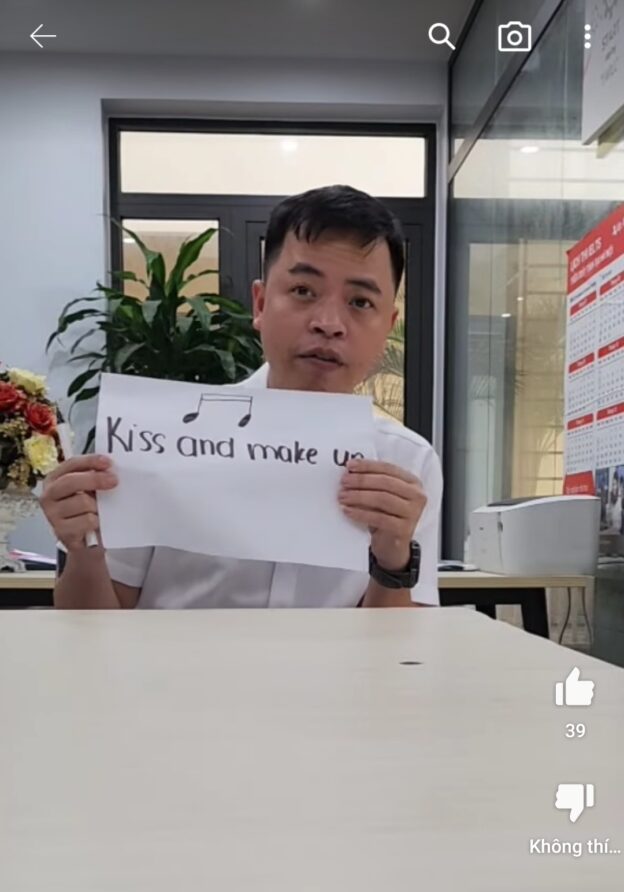
Guess names of some famous songs
Learn english with my daughter: word stress
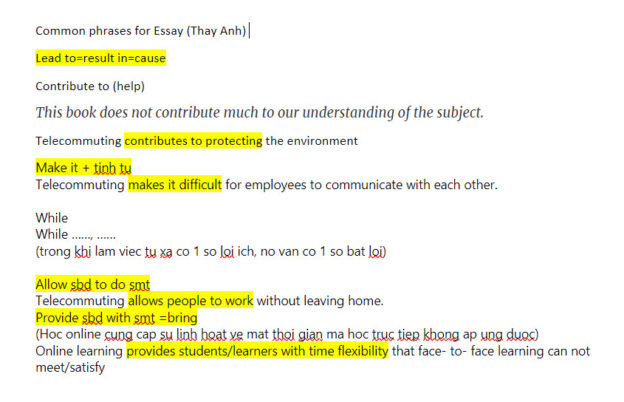
Common phrases for essay (part 1)
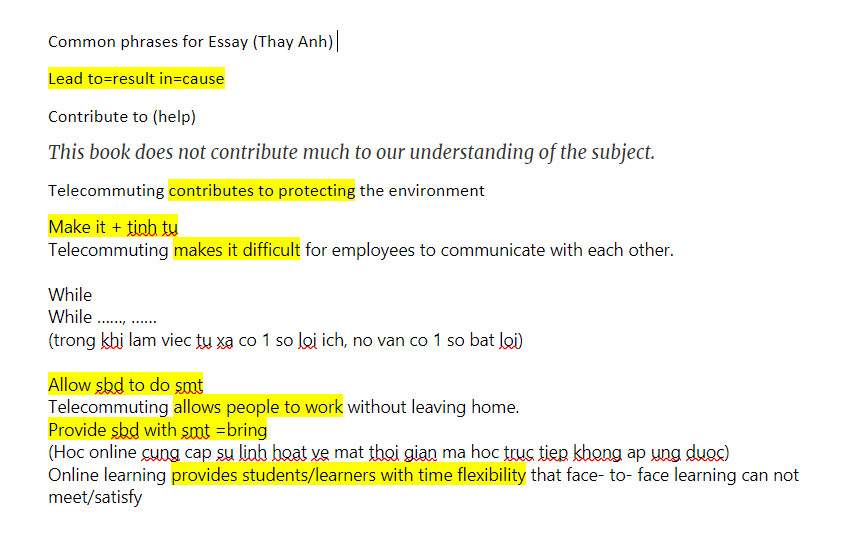

Writing: Các cụm từ thể hiện quan điểm
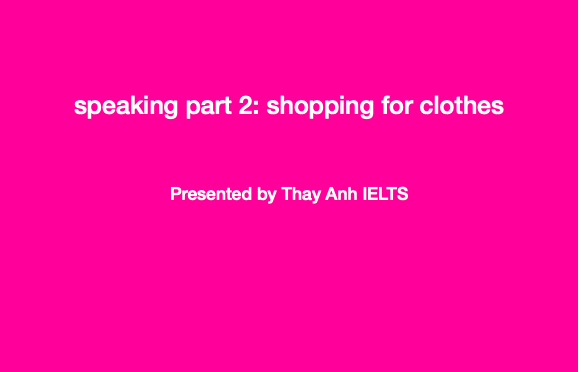
speaking part 2: shopping for clothes
Describe a place where you go shopping for clothes
You should say:
- Where you usually go
- how often you shop for clothes
- how you choose your clothes
- and explain why you go there
Shopping is my hobby. so I often spend my free time doing shopping. I used to buy clothes from various stores, from small ones to shopping malls. But now I am really interested in buying clothes from a store called “ABC” that is about 1 km away from my home.
Since I Knew this store, I often go there twice or three times a month to get my beautiful clothes. You know, I think this store quite satisfies my need because it provides a wide range of clothes, materials, sizes so I can choose outfits that suit me well.
To get suitable clothes, I will choose style first. I am a young person so dynamic clothes will fit me best. Next, I pay attention to material. I love leather most because it makes me more masculine.
Besides, Prices at the store are affordable, only 20-30 dollars. Shop assistants here are very friendly and hospitable. They always help me find the clothes that I very love. I also like the guarantee program of the shop. After bringing clothes home, If I do not like them anymore, in ten days I can bring them back to the store and get full 100% cashback. I think this store is my best choice when buying clothes in my city (Thay Anh IELTS)

DOWNLOAD GET READY FOR IELTS

Thầy Anh giới thiệu bộ sách GET READY FOR IELTS của nhà xuất bản Collins (link tải sách xem bên dưới)
4 cuốn sách trong bộ Get Ready for IELTS đều có một format giống nhau, phân chia theo kiến thức của 4 kỹ năng trong bài thi IELTS là Nghe – Nói – Đọc – Viết. Cụ thể:
- Mỗi cuốn gồm 12 bài học được phân loại kỹ lượng và cẩn thận cho học viên ở trình độ trung cấp có thể dễ học nhất bởi nhiều ví dụ minh họa chi tiết rõ ràng. Kiến thức được cung cấp từ trình độ cơ bản đến nâng cao, giúp người học dần dần quen với IELTS.
- Những phần ngữ pháp và từ vựng quan trọng được cung cấp trong từng bài học. Ở mỗi cuốn bạn sẽ được cung cấp những kiến thức căn bản và bám sát và các kỹ năng giúp bạn ôn luyện các kỹ năng hiệu quả hơn.
- Với mỗi bài học sẽ cung cấp cho bạn những gợi ý, những mẹo làm bài với các dạng đề thi IELTS đã được ra phổ biến trước đó. Cộng thêm là từng phần ở từng bài học sẽ giúp bạn làm sáng tỏ những điểm sai mà bạn có thể gặp phải khi thi IELTS.
- Cuối mỗi bài học đều có bài tập áp dụng để bạn thực hành theo kiến thức đã được cung cấp. Và có những bài test để bạn tự ôn lại toàn bộ kiến thức của các bài học trước đó giúp bạn nắm vững và nhớ lâu hơn.
- Có 4 bài Review cuối sách, đây là những dạng bài tập sẽ giúp bạn kiểm tra lại toàn bộ kiến thức mà bạn được cung cấp ở mỗi cuốn. Nó sẽ giúp bạn nắm lại kiến thức, những kĩ năng cũng như cảm nhận ngôn ngữ cho bài thi IELTS.
- Phần answer keys cuối sách giúp bạn check lại đáp án bài tập ở mỗi phần học.
- Đặc biệt, sách cung cấp vô vàng từ vựng cho từng bài tập sẽ được cung cấp ở cuối sách.
Bạn có thể mua sách ở các nhà sách hoặc đặt mua sách trên mạng để dễ học hơn nhé.
Cuốn sách Get Ready for IELTS thực sự rất hữu ích, Thầy Anh IELTS rất mong nó có thể giúp bạn ôn luyện IELTS một cách dễ dàng và hữu ích để chuẩn bị cho kì thi IELTS sắp tới.
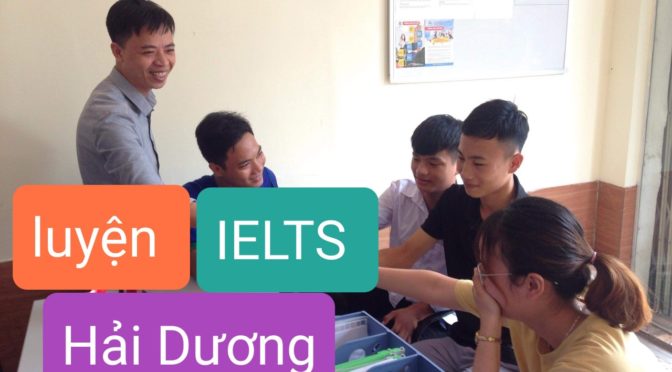
Khai giảng lớp mới tháng 3/2021 – luyện thi ielts ở hải dương
luyện thi ielts ở hải dương
Cam kết đầu ra
Thầy Anh đang chuẩn bị mở lớp
Từ 4.0 lên 5.0
Từ 5.0-6.0
Từ 6.0-7.0+
Các bạn có nhu cầu nhanh tay học nhé-luyện thi IELTS ở hải dương
Thông tin Thầy Anh IELTS ( Nguyên giảng viên Thạc sỹ CĐ DLTM)
– Có nhiều kinh nghiệm luyện thi IELTS và nhiều học viên điểm cao
– Lộ trình học rõ ràng
– Nghiêm khắc với học viên
– Luôn hướng về kết quả cuối cùng: đạt mục tiêu điểm IELTS đề ra
ĐT: 0963.082.184
ĐC học: 36/104, Nguyễn Thị Duệ, Tp Hải Dương
IELTS Speaking Practice: Your Family
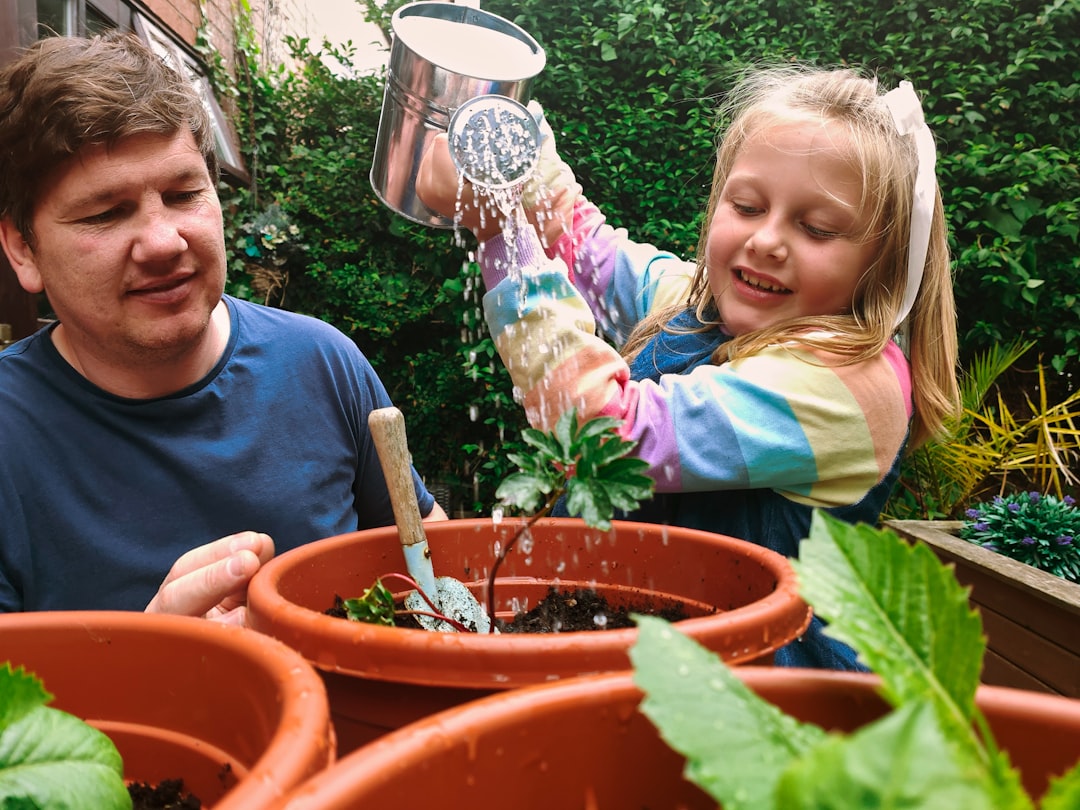
Speaking Part
Q1: Can you tell me a little about your family?
I come from a nuclear family, which is quite common in my country. It consists of my parents, my elder brother and me. Despite being a small unit, we lead a harmonious and loving life together.
• Nuclear family → Gia đình hạt nhân
• Harmonious → Hòa thuận, hòa hợp
• Loving life → Cuộc sống tình thương
Q2: How much time do you spend with your family?
Although I am inundated with work most of the time, I always make sure to spend quality time with my family. We usually have dinner together and share the highlights of our day, which I believe strengthens our bonds.
• Inundated with work → Bận rộn với công việc
• Quality time → Thời gian chất lượng
• Strengthen our bonds → Củng cố tình cảm
Q3: What do you like to do with your family?
We are quite a homebody family, so we prefer indoor activities. We enjoy watching movies and playing board games together. These shared activities not only entertain us but also foster a sense of unity and love among us.
• Homebody → Người thích ở nhà
• Foster a sense of unity → Tăng cường tình đoàn kết
• Love among us → Tình yêu giữa chúng tôi
Exercises
- 1. I come from a ______ family.
- 2. We lead a _______ and loving life together.
- 3. Although I am ______ with work most of the time.
- 4. I always make sure to spend ______ time with my family.
- 5. We usually have dinner together and ______ our bonds.
- 6. We are quite a ______ family.
- 7. We prefer ______ activities.
- 8. We enjoy watching movies and ______ games together.
- 9. These shared activities not only entertain us but also ______ a sense of unity.
- 10. Love ______ us.
Answers
- 1. Nuclear
- 2. Harmonious
- 3. Inundated
- 4. Quality
- 5. Strengthen
- 6. Homebody
- 7. Indoor
- 8. Playing board
- 9. Foster
- 10. Among
IELTS Speaking Practice: Your Studies/Work

Speaking Part
Q1: What do you do for a living?
I work as a software developer at a multinational corporation. I mainly focus on developing and maintaining software systems to meet the company's needs.
• Multinational corporation → Công ty đa quốc gia
• Developing and maintaining software systems → Phát triển và duy trì hệ thống phần mềm
• Meet the company's needs → Đáp ứng nhu cầu của công ty
Q2: What is your field of study?
I'm majoring in Computer Science, specifically in the area of artificial intelligence. It's a fascinating field that combines technology and logic.
• Majoring in Computer Science → Chuyên ngành Khoa học Máy tính
• In the area of artificial intelligence → Trong lĩnh vực trí tuệ nhân tạo
• Combines technology and logic → Kết hợp công nghệ và logic
Q3: What do you like most about your job/study?
The aspect I like most about my job is the constant opportunity to learn and grow. Technology is always evolving, so I never stop learning.
• Constant opportunity → Cơ hội liên tục
• Always evolving → Luôn đang phát triển
• Never stop learning → Không bao giờ dừng việc học
Exercises
- 1. She is ______ in English Literature.
- 2. ABC Inc. is a ______ with branches all over the world.
- 3. The job offers a ______ to travel and explore new cultures.
- 4. Technology is ______, making it an exciting field to work in.
- 5. I work on ______ the company's digital marketing strategies.
- 6. My job involves ______ new software applications to improve business efficiency.
- 7. Studying foreign languages is a ______ that requires patience and practice.
- 8. He is specializing in the ______ of neurology.
- 9. The engineer is responsible for ______ the company's network systems.
- 10. In this fast-paced world, we should ______.
Answers
- 1. Majoring
- 2. Multinational corporation
- 3. Constant opportunity
- 4. Always evolving
- 5. Developing and maintaining
- 6. Developing
- 7. Field
- 8. Area
- 9. Maintaining
- 10. Never stop learning
IELTS Speaking Practice: Neighbors & Friends
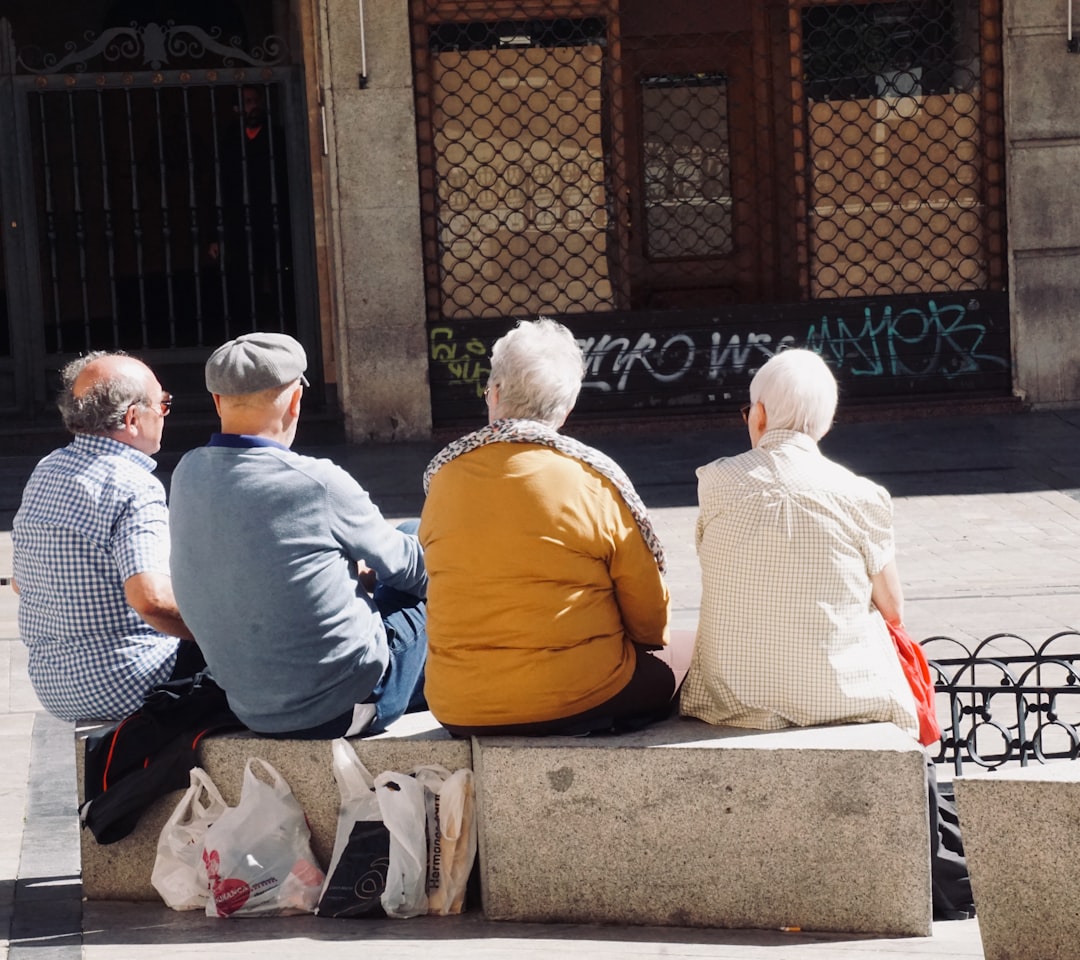
Speaking Part
Q1: Do you know your neighbors?
Yes, I do. I live in a close-knit community where everyone knows everyone. It's a really coherent and amicable neighborhood.
• Close-knit community → Cộng đồng kín đáo, mọi người đều biết nhau
• Coherent → Đồng nhất, một mực
• Amicable → Thân thiện, hoà nhã
Q2: How often do you see your friends?
I see my friends quite frequently, usually at least once a week. We often gather at a local café to catch up on each other's lives and also to unwind from our hectic schedules.
• Frequently → Thường xuyên
• Gather → Tụ tập, gặp gỡ
• Unwind → Thư giãn, xả stress
Q3: Do you prefer spending time with friends or family?
That's a tough question. I cherish the time with both. My family provides me with a sense of belonging and emotional security whereas my friends offer different perspectives and a lot of fun.
• Cherish → Trân trọng, yêu quý
• Sense of belonging → Cảm giác thuộc về
• Different perspectives → Những quan điểm khác nhau
Exercises
- 1. She often ______ at her friend's house after work.
- 2. We live in a ______ community where everyone is friendly.
- 3. I ______ the memories we made during our school days.
- 4. He tends to ______ after a long day at work by watching TV.
- 5. Our neighborhood is very ______, people often help each other.
- 6. I value my family because they give me a ______.
- 7. They ______ at the park every weekend to play football.
- 8. We ______ with our neighbors during the annual block party.
- 9. She offers a ______ on the issue, which is quite interesting.
- 10. I see my friends ______, usually on weekends.
Answers
- 1. Gathers
- 2. Close-knit
- 3. Cherish
- 4. Unwind
- 5. Amicable
- 6. Sense of belonging
- 7. Gather
- 8. Catch up
- 9. Different perspective
- 10. Frequently
IELTS Speaking Practice: Your Family
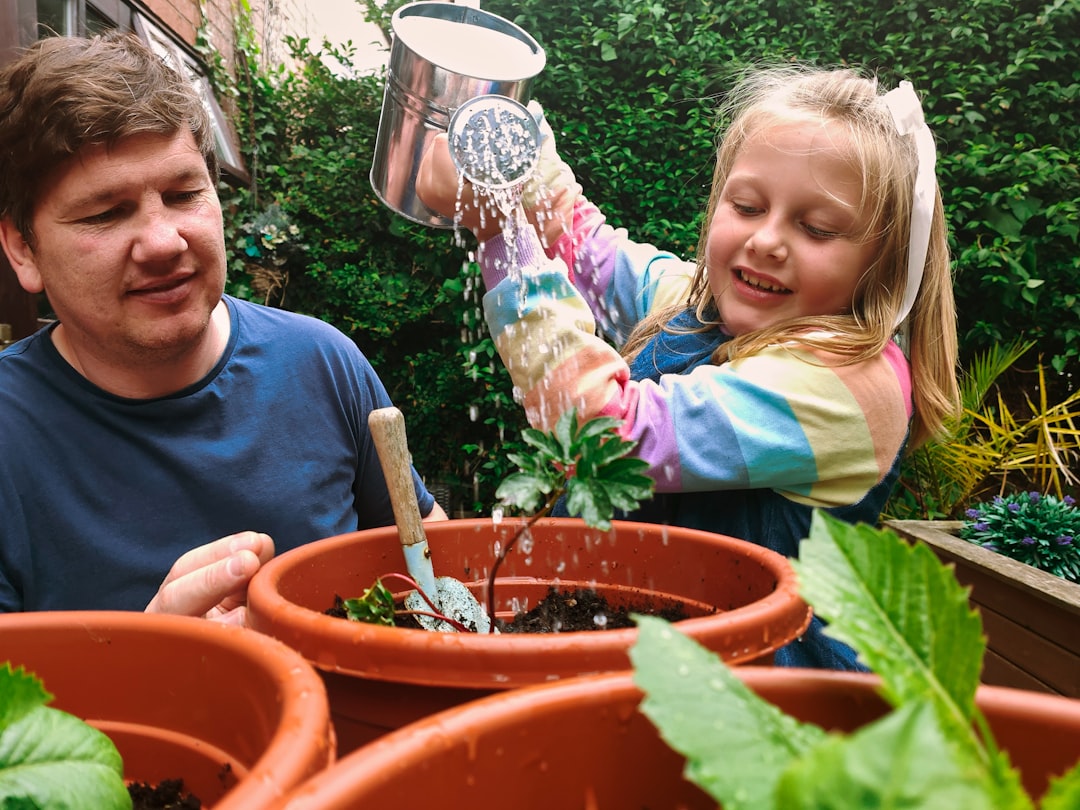
Speaking Part
Q1: Can you tell me a little about your family?
Certainly, I come from a nuclear family that consists of four members: my parents, my younger brother, and myself. My father is an engineer while my mother is a homemaker. As for my brother, he's currently in high school.
• Nuclear family → Gia đình hạt nhân
• Homemaker → Người nội trợ
• As for → Về phần
Q2: What do you like to do with your family?
We love spending quality time together, especially during the weekends. We often have a family outing to the park or a movie theater. Besides, we also enjoy having dinner together and sharing our daily experiences.
• Quality time → Thời gian chất lượng
• Family outing → Đi chơi cùng gia đình
• Sharing our daily experiences → Chia sẻ những trải nghiệm hàng ngày
Q3: Who are you closest to in your family?
I would have to say my mother. She has always been my confidante and a source of encouragement. She knows me better than anyone else and always lends me an ear whenever I need to vent.
• Confidante → Người tâm sự
• Source of encouragement → Nguồn động viên
• Lends me an ear → Lắng nghe tôi
Exercises
- 1. She is a _______ who takes care of the house and the children.
- 2. We often go on a _______ to the beach during summer.
- 3. I usually spend _______ with my family on weekends.
- 4. My family is a _______ with four members.
- 5. I like _______ my thoughts with my sister.
- 6. My dad is my _______ when I feel demotivated.
- 7. My best _______ is my brother.
- 8. We love sharing our _______ at the dinner table.
- 9. _______ my sister, she is a university student.
- 10. My mother always _______ when I need someone to talk to.
Answers
- 1. Homemaker
- 2. Family outing
- 3. Quality time
- 4. Nuclear family
- 5. Sharing
- 6. Source of encouragement
- 7. Confidante
- 8. Daily experiences
- 9. As for
- 10. Lends me an ear.
IELTS Speaking Practice: Your Studies/Work

Speaking Part
Q1: What do you do? Are you a student or do you have a job?
I'm currently an undergraduate student, pursuing a degree in Computer Science at XYZ University. I've always had a penchant for technology and its application, so this field is a perfect fit for me.
• Undergraduate student → Sinh viên đại học
• Pursuing a degree → Đang theo đuổi một bằng cấp
• Penchant for → Có sở thích về
Q2: Why did you choose that subject/job?
Since my high school days, I've been fascinated by the way technology has been shaping our lives. I believe that studying Computer Science will equip me with the necessary skills to contribute to this ever-evolving field.
• Been fascinated by → Bị cuốn hút bởi
• Shaping our lives → Định hình cuộc sống của chúng ta
• Equip me with → Trang bị cho tôi
Q3: What do you like most about your studies/job?
What I love about my studies is the opportunity to create and innovate. Each assignment or project is like a puzzle, and finding the optimal solution is both challenging and rewarding.
• Opportunity to create and innovate → Cơ hội để sáng tạo và đổi mới
• Optimal solution → Giải pháp tối ưu
• Challenging and rewarding → Thách thức và đáng giá
Exercises
- 1. She is ______ a degree in Environmental Science.
- 2. Her ______ for painting led her to pursue a career as an artist.
- 3. He has always ______ by the mysteries of the universe.
- 4. Regular exercise plays a key role in ______ our health.
- 5. This course will ______ you with the basics of programming.
- 6. The ______ to design and develop new software is what he loves about his job.
- 7. They are working hard to find the ______ solution to the traffic problem in the city.
- 8. This task is quite ______ but I'm sure the result will be ______.
- 9. He's an ______ student studying Economics.
- 10. The invention of the internet is a major event that has been ______ our lives.
Answers
- 1. Pursuing
- 2. Penchant
- 3. Been fascinated
- 4. Shaping
- 5. Equip
- 6. Opportunity to create and innovate
- 7. Optimal
- 8. Challenging, rewarding
- 9. Undergraduate
- 10. Shaping
IELTS Speaking Practice: Weather & Seasons

Speaking Part
Q1: What type of weather do you like?
I'm a big fan of fairly cool weather. The kind of weather you can find in the late autumn or early spring when the temperature is around 15 to 20 degrees Celsius. I find it very comfortable and invigorating.
• Big fan of → Thích một cách mạnh mẽ
• Fairly cool → Khá mát mẻ
• Invigorating → Sảng khoái, tràn đầy năng lượng
Q2: How does the weather affect your mood?
The weather greatly influences my feelings and emotions. On sunny days, I tend to be more optimistic and energetic. However, on gloomy days, I often feel a bit down and prefer to stay indoors.
• Greatly influences → Ảnh hưởng lớn
• Tend to be → Có xu hướng trở nên
• Feel a bit down → Cảm thấy hơi buồn
Q3: What is your favourite season and why?
My favourite season is definitely spring. It’s the time when everything comes back to life after a long winter sleep. Flowers start blooming, trees start budding, and the weather is just perfect with a gentle breeze and warm sunshine.
• Comes back to life → Trở lại cuộc sống, sống động trở lại
• Start blooming/budding → Bắt đầu nở hoa/đâm chồi
• Gentle breeze → Cơn gió nhẹ
Exercises
- 1. I am a ______ fan of hot weather.
- 2. The storm ______ affects our outdoor activities.
- 3. In the autumn, the weather is ______ cool.
- 4. During the winter, I ______ to be lazy and sleep more.
- 5. When I feel a ______ down, I usually listen to music.
- 6. My ______ season is summer because I can go swimming.
- 7. In the spring, flowers ______ blooming.
- 8. I love the ______ breeze in the early morning.
- 9. After the long winter, the earth ______ back to life.
- 10. I love the weather with warm ______ and a little rain.
Answers
- 1. Big
- 2. Greatly
- 3. Fairly
- 4. Tend
- 5. Bit
- 6. Favourite
- 7. Start
- 8. Gentle
- 9. Comes
- 10. Sunshine
IELTS Speaking Practice: Outdoor Activities

Speaking Part
Q1: Do you like outdoor activities?
Absolutely! I'm quite an outdoorsy person, so I enjoy a wide range of outdoor activities, particularly hiking and camping. It allows me to stay active and have a close encounter with nature, which I find incredibly rejuvenating.
• Outdoorsy person → người thích hoạt động ngoài trời
• Close encounter → gặp gỡ sát sao
• Incredibly rejuvenating → làm mới mẻ đến mức không tưởng
Q2: What outdoor activities are popular in your country?
In my country, people are quite keen on various outdoor activities. Football and badminton are among the most popular, especially among the youth. Moreover, picnicking in parks or countryside during weekends or holidays is also prevalent.
• Keen on → có hứng thú với
• Prevalent → phổ biến
Q3: What benefits do outdoor activities bring?
Engaging in outdoor activities can bring about numerous benefits. It not only helps improve physical health by keeping us active but also contributes to mental wellbeing by relieving stress and anxiety. Moreover, it provides an opportunity to socialize and build stronger relationships.
• Engaging in → tham gia vào
• Mental wellbeing → sự khỏe mạnh về tinh thần
• Relieving stress and anxiety → giảm căng thẳng và lo lắng
Exercises
- 1. She's an ______ person who loves hiking and camping.
- 2. He had a ______ encounter with a wild deer in the forest.
- 3. After a long week of work, a walk in the park is ______ rejuvenating.
- 4. Many teenagers in our country are ______ on football.
- 5. Going to the gym is ______ among young adults.
- 6. Children can benefit from ______ in team sports.
- 7. Yoga can contribute to your ______ wellbeing.
- 8. Listening to music can help in ______ stress and anxiety.
- 9. Weekend camping provides an opportunity to ______ and make new friends.
- 10. Regular exercise can improve your physical ______.
Answers
- 1. Outdoorsy
- 2. Close
- 3. Incredibly
- 4. Keen
- 5. Prevalent
- 6. Engaging
- 7. Mental
- 8. Relieving
- 9. Socialize
- 10. Health
IELTS Speaking Practice: Your Hometown
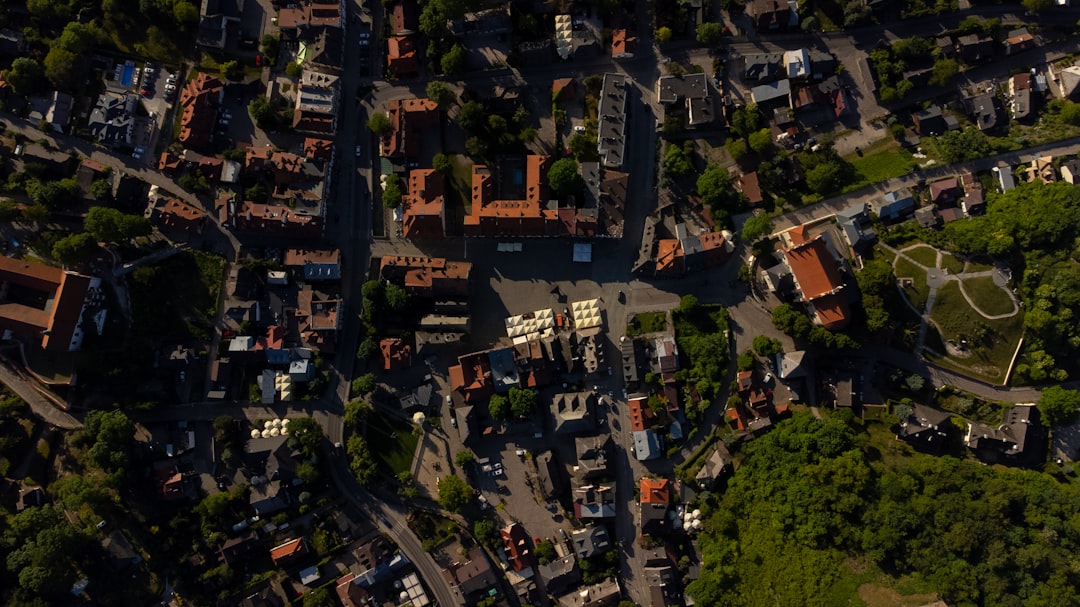
Speaking Part
Q1: Can you describe your hometown for me?
Absolutely, my hometown is a bustling metropolis, filled with towering skyscrapers and teeming with life. It's the epicenter of commerce, culture, and entertainment in our country. The city never sleeps, and there's always something exciting happening.
• bustling metropolis → thành phố nhộn nhịp
• the epicenter of → trung tâm của
• the city never sleeps → thành phố không bao giờ ngủ
Q2: What do you like the most about your hometown?
I absolutely adore the vibrant nightlife in my hometown. The streets are lined with a plethora of bars, clubs and restaurants, and there's an infectious energy that permeates the air once the sun goes down. It's truly a city that comes alive at night.
• vibrant nightlife → cuộc sống về đêm sôi động
• a plethora of → một lượng lớn
• comes alive at night → trở nên sôi động vào ban đêm
Q3: What are some famous landmarks in your hometown?
There are several iconic landmarks in my hometown, most notably the towering skyscrapers that dominate the city skyline. Additionally, we have several historical sites that are a testament to our rich cultural heritage.
• iconic landmarks → những địa điểm biểu tượng
• dominate the city skyline → chiếm ưu thế trên bầu trời thành phố
• a testament to our rich cultural heritage → minh chứng cho di sản văn hóa phong phú của chúng tôi
Exercises
- 1. My hometown is a ______ metropolis, always full of life.
- 2. The city is the ______ of commerce in our country.
- 3. I absolutely adore the ______ nightlife in my city.
- 4. There is always an ______ energy in the air at night.
- 5. The city truly ______ at night.
- 6. There are several ______ landmarks in my hometown.
- 7. The skyscrapers ______ the city skyline.
- 8. We have many sites that are a ______ to our rich cultural heritage.
- 9. My hometown is ______ with skyscrapers.
- 10. There's a ______ of bars and clubs in my hometown.
Answers
- 1. bustling
- 2. epicenter
- 3. vibrant
- 4. infectious
- 5. comes alive
- 6. iconic
- 7. dominate
- 8. testament
- 9. filled
- 10. plethora
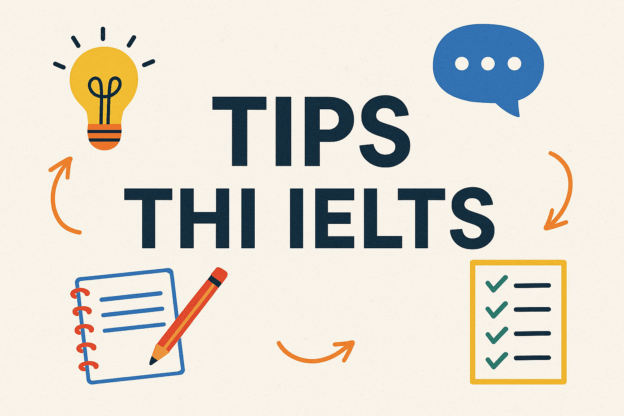
Tips cho các bạn sắp thi ielts
Lưu Ý Quan Trọng
Trước Khi Vào Phòng Thi
Những lời khuyên tâm huyết từ Thầy Anh dành cho các sĩ tử.
1. Giấy tờ & Thời gian
- Mang bản gốc CCCD/Hộ chiếu.
- Đến sớm 30–45 phút.
2. Sức khỏe & Tâm lý
- Chuẩn bị sức bền > 3 tiếng.
- Tập Mock Test để quen áp lực.
3. Kỹ năng Nghe
- Lỡ câu nào -> QUÊN NGAY.
- Tập trung 100% vào câu tiếp theo.
4. Kỹ năng Đọc
- Bình tĩnh, không hoảng loạn.
- Bẻ nhỏ ý (S-V) để hiểu.
5. Skimming
- KHÔNG bỏ chữ, nhảy dòng lung tung.
- Mất ý sẽ phải đọc lại -> Tốn giờ.
6. Viết & Nói
- Chính xác > Màu mè.
- Giữ an toàn ngữ pháp & chính tả.
7. Sự cố kỹ thuật (Technical Issues)
Tai nghe rè, máy hỏng… -> Giơ tay báo ngay!
IELTS Speaking Practice: Weather & Seasons

Speaking Part
Q1: Do you prefer hot or cold weather?
Personally, I have a penchant for colder climates. The high temperatures in the summer can be quite overwhelming for me, and I find that I function better mentally and physically in cooler weather.
• Have a penchant for → Có thiện cảm đặc biệt với
• Overwhelming → Quá mức, quá đáng
• Function better → Hoạt động tốt hơn
Q2: What kind of weather do you like the most?
I am particularly fond of crisp, autumn weather. The mild temperatures and the changing colors of the leaves create a truly picturesque atmosphere.
• Particularly fond of → Đặc biệt yêu thích
• Crisp → Trời lạnh, se lạnh
• Picturesque → Đẹp như tranh vẽ
Q3: What is your favorite season and why?
Without a doubt, my favorite season is spring. The blooming flowers, the warmer weather, and the longer days all contribute to a sense of renewal and rejuvenation.
• Without a doubt → Không còn nghi ngờ gì
• Contribute to → Đóng góp vào
• Sense of renewal and rejuvenation → Cảm giác trẻ lại, phục hồi sức sống
Exercises
- 1. I really ______ the winter season.
- 2. The ______ temperatures in the desert can be quite harsh.
- 3. She is ______ fond of the rainy season.
- 4. The ______ weather makes me feel relaxed and calm.
- 5. My favorite season is ______, because of the blooming flowers and warmer weather.
- 6. I find that I ______ better in cooler weather.
- 7. The changing colors of the leaves create a truly ______ atmosphere.
- 8. The hot weather is quite ______ for me.
- 9. The longer days in summer ______ to a sense of rejuvenation.
- 10. I have a ______ for colder climates.
Answers
- 1. Love
- 2. High
- 3. Particularly
- 4. Cold
- 5. Spring
- 6. Function
- 7. Picturesque
- 8. Overwhelming
- 9. Contribute
- 10. Penchant